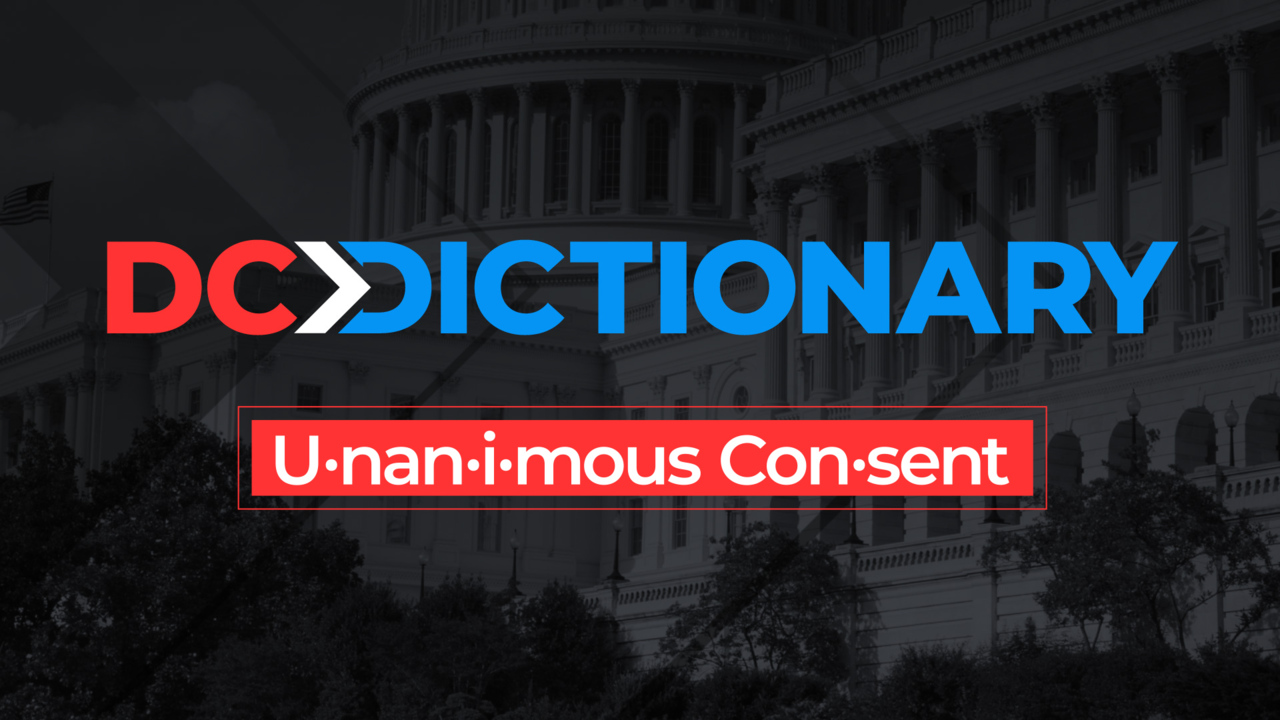
Sen. Mitch McConnell – R-KY says: “I ask unanimous consent
Very little get’s done in Washington with everyone’s approval.
Sen. Chuck Schumer – D-NY says: “I ask unanimous consent:
But when it does, it happens through unanimous consent.
Rep. Jackie Speier – D-CA says: “I ask unanimous consent to revise and extend my remarks”
“Without objection.”
So what is Unanimous consent? Let’s check our DC dictionary.
If a member of congress wants to get something done quickly, and bypass all the procedures that routinely tie up other bills or nominations, they can ask for the measure to be approved unanimously.
A UC agreement is often used for everyday procedural items. But it can also be used to pass legislation. Senators passed the Supreme Court Police Parity act, providing around the clock police protection to justices’ families, via unanimous consent.
Sen. Tina Smith – D-MN says: “I ask unanimous consent that the Judiciary committee be discharged from further consideration of S4160 and the Senate proceed to its immediate consideration.
“I ask unanimous consent that the bill be considered read a third time and passed and the motions to be reconsidered made and laid upon the table.” “without objection.”
If just one Senator objects, the request is rejected. That’s what happened when Senator Rand Paul objected to Senator Kirsten Gillibrand’s request for unanimous consent to approve the 9/11 victims compensation fund extension.
Sen. Rand Paul, R-KY says: “Any new program that’s going to have the longevity of 70-80 years should be offset by cutting spending that’s less valuable. But until then I will object.
Sen. Kirsten Gillibrand, D-NY says: “I am deeply disappointed that my colleague has just objected to the desperately needed and urgent bill for our 9/11 first responders.”
UC goes all the way back to 1846. And In a place of history, rigid rules and procedures, it’s also occasionally the butt of jokes.
Former Senate Leader Trent Lott – R-MS says: “Finally I went to the parliamentarian. I said what are the rules here?’ He said there are only 2 rules in the Senate, one is exhaustion and the other is unanimous consent.”






